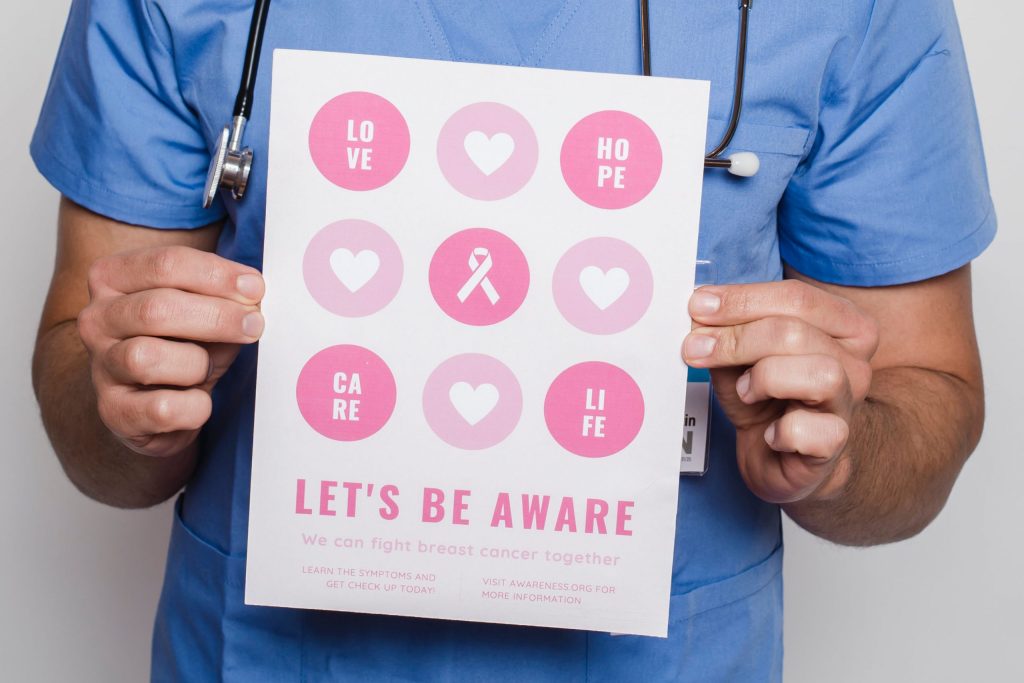
Breast cancer is a complex disease, and there is no single cause. However, researchers have identified several factors that may increase your risk of developing breast cancer. These include:
Risk Factors You Cannot Change:
– Being a woman: Breast cancer is more common in women than in men.
– Age: The risk of developing breast cancer increases with age, and most breast cancers are found in women who are 50 years old or older.
– Family history: If you have a close relative, such as a mother or sister, who has been diagnosed with breast cancer, your risk of developing the disease is higher.
– Inherited gene mutations: Some gene mutations, such as BRCA1 and BRCA2, can increase your risk of breast cancer.
– Dense breast tissue: Women with dense breast tissue have a higher risk of developing breast cancer.
Risk Factors You Can Change:
– Not being physically active: Women who are not physically active have a higher risk of getting breast cancer.
– Being overweight or obese: Being overweight or obese after menopause increases your risk of breast cancer.
– Drinking alcohol: Drinking alcohol increases your risk of developing breast cancer.
– Hormone therapy: Using hormone therapy after menopause can increase your risk of breast cancer.
– Reproductive history: Women who have never had children or who had their first child after age 30 have a slightly higher risk of breast cancer.
– Breastfeeding: Breastfeeding may slightly lower your risk of breast cancer.
It is important to note that having one or more of these risk factors does not necessarily mean you will develop breast cancer, and many women who develop breast cancer have no known risk factors other than simply being women. However, making changes in your daily life, such as being physically active, maintaining a healthy weight, and limiting alcohol intake, may help reduce your risk of breast cancer. If you have risk factors for breast cancer, talk with your doctor about ways you can lower your risk and about screening for breast cancer.
Breast cancer is a type of cancer that develops in the breast tissue. It is important to detect breast cancer early to increase the chances of successful treatment. Here are the tests and procedures used to diagnose breast cancer:
1. Breast exam: Your doctor will check both of your breasts and lymph nodes in your armpit to feel for any lumps or abnormalities.
2. Mammogram: A mammogram is an X-ray of the breast tissue. It can detect breast cancer early, before any symptoms are present. Mammogram is available at Primera Hospital, Kathmandu. This test is usually done in women more than 40 years of age.
3. Breast ultrasound: A machine that uses sound waves to make pictures, called sonograms, of areas inside the breast. It can help determine if a breast lump is solid or filled with fluid.
4. Breast biopsy: If a lump or abnormality is found, a biopsy may be done to remove a small sample of breast tissue for testing. There are several types of breast biopsies, including needle biopsy, core biopsy, and surgical biopsy. The biopies are done in Day Care Surgery at Primera Hospital.
5. Imaging tests: If breast cancer is diagnosed, other tests are done to find out if cancer cells have spread within the breast or to other parts of the body. This process is called staging. Imaging tests may include a CT scan, MRI, or PET scan.
6. Biomarker tests: Additional types of biomarkers that are made by the tumor or by the body in response to the cancer can be found in the blood or other fluids. These tests can help determine the best treatment plan.
After diagnostic tests are completed, your Breast Surgeon will review the results with you. If the diagnosis is cancer, these results also help the doctor describe the cancer. This is called staging. Depending on the stage and type of breast cancer, your doctor at Primera Hospital will recommend a treatment plan. It is important to discuss all of your treatment options with your doctor and to ask any questions you may have. Regular breast exams and mammograms can help detect breast cancer early, when it is most treatable. All the diagnostic tests for Breast Cancer is available at Primera Hospital.